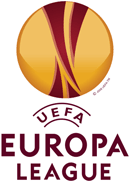UEFA Cup is changed to UEFA Europa League since 2009-2010 season. One of European football's most historic competitions is being given a total makeover in 2009 following a decision from the UEFA Executive Committee in November 2007. The UEFA Cup, launched for the 1971/72 season, is to become the UEFA Europa League from the beginning of the 2009/10 campaign as work continues to enhance the image and profile of European club football's second club competition.
The main points of the new format are:
• The group stage is expanded to include 12 groups of four teams each. Each team plays the other three sides on a home-and-away basis, with the top two teams in each of the 12 groups progressing to the Round of 32.
• Ten clubs eliminated from the UEFA Champions League play-off round qualify automatically for the group stage.
• Qualifying for the UEFA Europa League consists of four rounds, with the first involving a total of 46 teams. These are drawn from the domestic cup winners from the associations ranked 37 to 51
(except Liechtenstein) in the UEFA coefficient ranking, plus the domestic league runners-up from the associations ranked 37 to 51 (except Liechtenstein), the third-placed side from the associations ranked
22 to 51 (except Liechtenstein) and the three UEFA Fair Play winners enter the competition in the first qualifying round, which consists of two legs played on a home-and-away basis.
• The winners of those 23 ties are joined in the second qualifying round by a further 57 clubs: the domestic cup winners from the associations ranked 30 to 53 in the UEFA coefficient, the runners-up from the associations ranked 19 to 34, the third-placed sides from the associations ranked 16 to 21, the fourth-placed sides from the associations ranked 10 to 15 and the fifth-placed sides from the associations ranked 7 to 9. These ties are also played over two legs, home and away.
• The victorious sides from those 40 ties progress to the third qualifying round, where they are joined by a further 30 clubs: the domestic cup winners from the associations ranked 18 to 29, the domestic league runners-up from the associations ranked 16 to 18, the third-placed league side from the associations ranked 10 to 15, the fourth-placed side from the associations ranked 7 to 9, the fifth-placed side from the association ranked 4 to 6 and the sixth-placed side from the associations ranked 1 to 3. Again, these two legs are played home and away.
• The winners of these 35 ties are joined in the play-off round by another 41 clubs; the 15 losing teams from the UEFA Champions League third qualifying round, the domestic cup winners from the associations ranked 1 to 17, the third-placed league sides from the associations ranked 7 to 9, the fourth-placed team from the associations ranked 4 to 6 and the fifth-placed teams from the associations ranked 1 to 3.
• The 38 victorious sides from these two legs qualify for the UEFA Europa League group stage, and will be joined there by the ten losing sides from the UEFA Champions League play-off round. • The losing finalist for the domestic cup competition will still be entitled to be entered for the UEFA Europa League should the domestic cup winners qualify for the UEFA Champions League. • The UEFA Europa League Round of 32 includes the top two teams from each of the 12 groups, plus the eight teams who finish in third position in their UEFA Champions League group. The winners of these 16 ties progress to the Round of 16, then the quarter-finals and subsequently the semi-finals. • The final will be played on a Wednesday night in a single match at a neutral venue, kick-off 20.45CET. • UEFA Europa League matches will be played on Thursday night in a week where there are UEFA Champions League matches, and on Wednesday and Thursday nights during weeks that are exclusive to the UEFA Europa League. There will be two kick-off times, in principle at 19.00 and 21.05CET according to local situations. • There will be full centralisation of media rights from the UEFA Europa League group stage, involving non-exclusive presenting sponsor plus a centralised match ball for the group stage and full sponsorship centralisation (as for the UEFA Champions League) from the Round of 32 onwards. |
